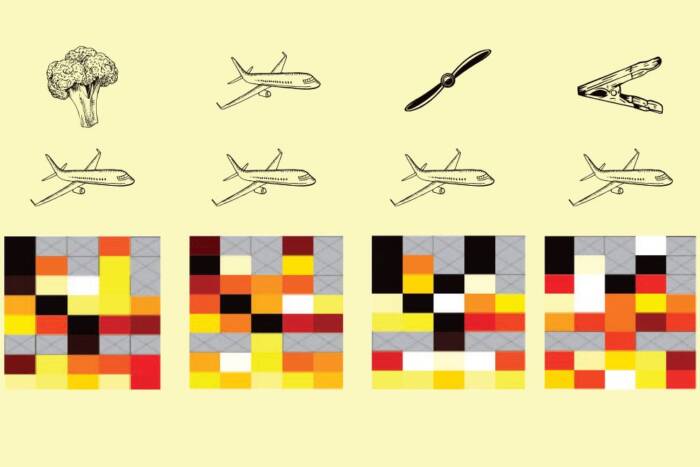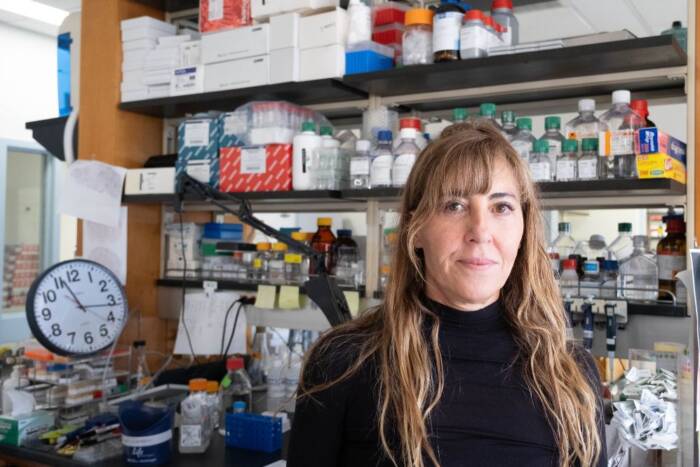Rockefeller University scientist Ralph Steinman, honored today with Nobel Prize for discovery of dendritic cells, dies at 68
Rockefeller University cell biologist Ralph M. Steinman, who discovered the immune system’s sentinel dendritic cells(opens in new window) and demonstrated that science can fruitfully harness the power of these cells and other components of the immune system to curb infections and other communicable diseases, is this year’s recipient of the Nobel Prize in Physiology or Medicine, the Nobel Foundation in Stockholm, Sweden, announced today. He shares the prize with Bruce A. Beutler and Jules A. Hoffmann.
Steinman passed away on September 30. He was 68. He was diagnosed with pancreatic cancer four years ago and his life was extended using a combination of surgery, standard chemotherapy and experimental dendritic-cell based immunotherapy of his own design. Although the Nobel prize is not typically awarded posthumously, the Nobel committee has announced that Dr. Steinman’s selection will stand since the committee did not learn of his death until after it had reached its decision.
“The Rockefeller University is delighted that the Nobel Foundation has recognized Ralph Steinman for his seminal discoveries concerning the body’s immune responses,” says Rockefeller University President Marc Tessier-Lavigne, Ph.D. “But the news is bittersweet, as we also learned this morning from Ralph’s family that he passed a few days ago after a long battle with cancer. Our thoughts are with Ralph’s wife, children and family.”
“We are all so touched that our father’s many years of hard work are being recognized with a Nobel Prize,” says his daughter, Alexis Steinman. “He devoted his life to his work and his family, and he would be truly honored.”
“Ralph’s research has laid the foundation for numerous discoveries in the critically important field of immunology, and it has led to innovative new approaches in how we treat cancer, infectious diseases and disorders of the immune system,” Tessier-Lavigne says.
Steinman’s early research, conducted in collaboration with the late Zanvil A. Cohn at Rockefeller, began as an attempt to understand the primary white cells of the immune system — the large “eating” macrophages and the exquisitely specific lymphocytes, which operate in a variety of ways to spot, apprehend and destroy infectious microorganisms and tumor cells. Steinman’s subsequent research points to dendritic cells as important and unique accessories in the onset of several immune responses, including clinically important situations such as graft rejection, resistance to tumors, autoimmune diseases and infections including AIDS.
Steinman, Henry G. Kunkel Professor at The Rockefeller University, who was a senior physician at The Rockefeller University Hospital, and head of the Laboratory of Cellular Physiology and Immunology, is the 24th scientist associated with the university to receive the Nobel. In the last dozen years, four other Rockefeller scientists — Roderick MacKinnon (2003), in chemistry, and Paul Nurse (2001) Paul Greengard (2000), and Günter Blobel (1999) in medicine, have received the Nobel Prize.
In addition to Steinman, MacKinnon, Greengard and Blobel, three other Nobel Prize winners are current members of the Rockefeller faculty: Christian de Duve (1974, Medicine), Torsten Wiesel (1981, Medicine) and Paul Nurse (2001, Medicine).
Steinman was born in Montreal, Canada on January 14, 1943. He received a B.S. degree, with honors, from McGill University in 1963, and an M.D., magna cum laude, from Harvard Medical School in 1968. After completing an internship and residency at Massachusetts General Hospital, he joined The Rockefeller University in 1970 as a postdoctoral fellow in the Laboratory of Cellular Physiology and Immunology headed by Cohn and the late James G. Hirsch. He was appointed an assistant professor in 1972, associate professor in 1976, and professor in 1988. He was named Henry G. Kunkel Professor in 1995, and director of the Christopher Browne Center for Immunology and Immune Diseases in 1998.
A recipient of the Freidrich-Sasse, Emil von Behring, and Robert Koch Prizes, Steinman also has received the Rudolf Virchow and Coley Medals and the Gairdner Foundation International Award, in 2003. He was awarded honorary degrees from the University of Innsburck and Free University of Brussels. He also received the 2004 New York City Mayor’s Award for Science and Technology, the 2007 Lasker Award for Basic Medical Research and the 2009 Albany Medical Center Prize in Medicine and Biomedical Research. He was a member of the U.S. National Academy of Sciences and its Institute of Medicine.
A scientific symposium in honor of Steinman is being planned for the spring of 2012.
This story was updated on October 4 to clarify the cancer treatments Steinman received.
Recent photos of Steinman:
High-resolution image #1
High-resolution image #2
High-resolution image #3
High-resolution image #4
Archival photos of Steinman:
Photo #1: with Zanvil Cohn, 1983
Photo #2: 1992
Photo #3: 1983
Photo #4: with Yongwon Choi date unknown
Photo #5: with Gilla Kaplan, 1993
Photo #6: date unknown
High-resolution image #1 of a dendritic cell made by Steinman in 1973
High-resolution image #2 of a dendritic cell made by Steinman
Photos from the press conference (credit Zach Veilleux / Rockefeller University):
Photo #1: Steinman’s wife, Claudia Steinman, speaks with reporters
Photo #2: Steinman’s wife, Claudia Steinman, speaks with reporters
Photo #3: Steinman’s wife and children speak with reporters; from left: Lesley Steinman, Adam Steinman, Claudia Steinman, Alexis Steinman
Photo #4: Rockefeller President Marc Tessier-Lavigne addresses reporters
Photo #5: Michel Nussenzweig, Steinman’s first student and longtime collaborator, addresses reporters
Photo #6: Steinman’s daughter, Alexis Steinman, speaks with reporters
Photo #7: Steinman’s daughter, Alexis Steinman, speaks with reporters
Photo #8: Steinman’s family addresses reporters; from left: daughter Lesley Steinman, wife Claudia Steinman, son Adam Steinman, daughter Alexis Steinman
Additional links:
Steinman’s lab Web page: Laboratory of Cellular Physiology and Immunology(opens in new window)
Newswire coverage of Steinman’s work(opens in new window)
Lasker Foundation videos of Steinman explaining his work(opens in new window)


